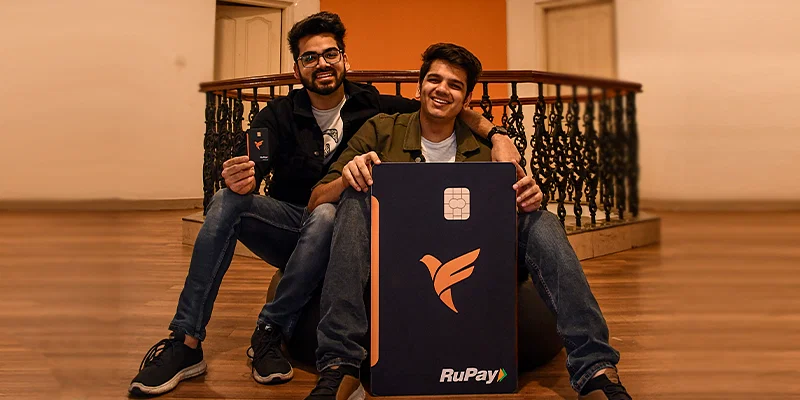Entrepreneurs
FamPay Founders Sambhav Jain and Kush Taneja: Revolutionizing Teen Neo-Banking in India

In the bustling corridors of the Indian Institute of Technology (IIT) Roorkee, Sambhav Jain and Kush Taneja embarked on a mission fuelled by a simple yet significant observation – over 85 kilos of food were going to waste every month in their college canteen. This realization sparked the genesis of Project Appetiser in 2017, a venture that ultimately paved the way for their ground-breaking neo-banking platform for teens, FamPay.
The duo recognized a pervasive issue on their campus: students skipping meals provided by the hostel administration, leading to both food wastage and financial inefficiency. Their solution was as ingenious as it was straightforward – an app-based platform allowing students to choose and customize their meals. The impact was twofold: it reduced food wastage, and students were reimbursed for meals they opted to skip. The success of this initiative propelled them to contemplate more significant challenges in the financial landscape.
In 2019, armed with a fresh perspective and a keen awareness of the lack of financial literacy among young individuals, Jain and Taneja delved into a new venture. Market research conducted in Bengaluru revealed that over 90 percent of respondents below 14 years old did not have a bank account. This glaring gap led them to a pivotal realization – financial products and institutions were overlooking the vast demographic of teens. Considering that 40 percent of India’s population is under 18, the duo saw an entrepreneurial opportunity to bridge this gap.
The result was FamPay, a neo-banking platform specifically designed for teenagers. Their vision was clear – to make banking both cool and fun, while simultaneously fostering financial literacy and responsibility among teens. Just three months after graduating from IIT Roorkee, Jain and Taneja secured a seed round of $4.7 million in September 2019, attracting noteworthy backers like Kevin Lin, co-founder of Twitch, Vladimir Tenev, co-founder of Robinhood, and Amrish Rau, CEO of Pine Labs. Despite facing the challenges of navigating the regulated fintech space, the duo launched FamPay in July 2020, introducing FamCard, India’s first numberless card in collaboration with IDFC Bank. Within eight months, the startup amassed an impressive two million registered users, signaling a rapid ascent in the neo-banking arena.
Fast forward to June 2021, FamPay has emerged as a standout success among venture capitalists. The startup secured a substantial $38 million in a Series A funding round led by Elevation Capital, with participation from existing investors such as Sequoia Capital India, Venture Highway, and Y Combinator, along with new backers like General Catalyst, Rocketship VC, and Greenoaks Capital. Mridul Arora, partner at Elevation Capital, expressed confidence in FamPay’s potential to redefine banking for Gen Z, establishing itself as the go-to app for teenagers entering the fintech realm. While FamPay’s growth has been meteoric, challenges loom on the horizon. Monetization, potential user migration, and the necessity for parental consent are key hurdles. Teenagers, who form a significant portion of FamPay’s user base, will eventually transition to adulthood, posing a challenge for a product designed exclusively for teens. Additionally, ensuring parental buy-in for the long term is crucial. Sambhav Jain acknowledges these challenges and emphasizes the importance of the family unit in FamPay. The startup aims to be a financial guide for teens, involving parents in the process and positioning itself as a brand that resonates with both teens and their families.
